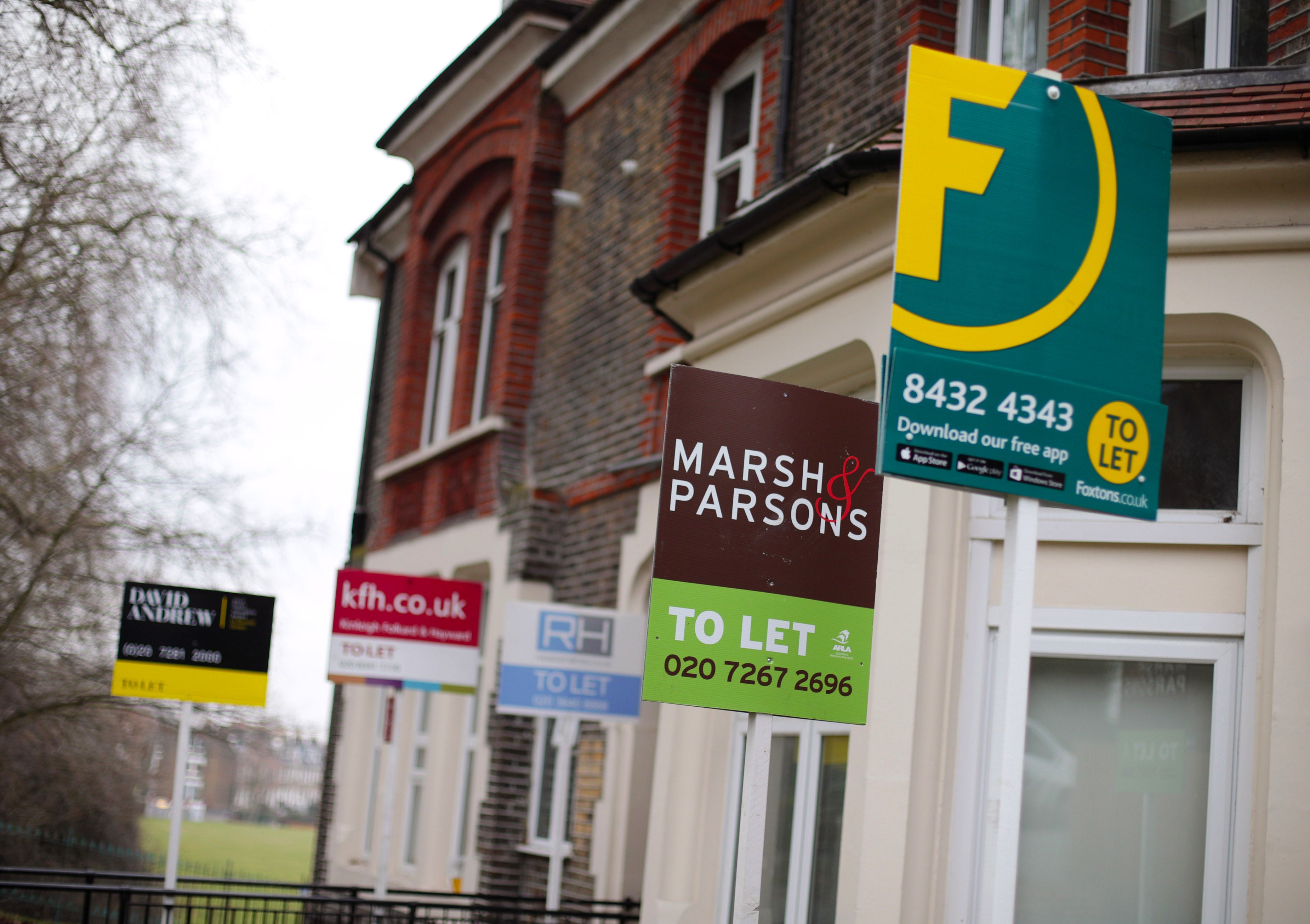One in five tenants fear losing their homes as eviction ban ends
Campaigners say a fund of £288m would help those most in need and at risk of homelessness - just 5 per cent of the amount given in Stamp Duty relief to homeowners

Your support helps us to tell the story
From reproductive rights to climate change to Big Tech, The Independent is on the ground when the story is developing. Whether it's investigating the financials of Elon Musk's pro-Trump PAC or producing our latest documentary, 'The A Word', which shines a light on the American women fighting for reproductive rights, we know how important it is to parse out the facts from the messaging.
At such a critical moment in US history, we need reporters on the ground. Your donation allows us to keep sending journalists to speak to both sides of the story.
The Independent is trusted by Americans across the entire political spectrum. And unlike many other quality news outlets, we choose not to lock Americans out of our reporting and analysis with paywalls. We believe quality journalism should be available to everyone, paid for by those who can afford it.
Your support makes all the difference.More than one in five private renters fear being removed from their homes when a ban on evictions in England ends on Monday, research has revealed.
Housing campaigners warn that tenants face a wave of eviction proceedings as bailiffs are again allowed to execute court orders for repossession.
A survey of more than 13,000 people by housing charity Shelter found that 22 per cent of people that are worried they will lose their home or be asked to leave at short notice.
Shelter is calling on the government to take urgent action now to protect renters against the imminent threat of eviction and homelessness.
Tenants have been protected from eviction since the start of the pandemic but a ban on bailiffs removing people from their homes ends on Monday. Evictions have still been proceeding through the courts, leading to fears of sharp rise in evictions as the backlog is cleared. Courts will prioritise the most serious cases, such as those involving anti-social behaviour.
From 1 June, bailiffs will be able to repossess properties and landlords will only have to give four months’ notice instead of six months before commencing eviction proceedings.
In Scotland, the eviction ban will run until 30 September for all areas under level 3 or level 4 restrictions. Evictions can proceed in Wales from 30 June. In Northern Ireland, no eviction ban in in force.
Research carried out by Shelter in November revealed 445,000 private renting adults in England were in arrears or had been threatened with eviction by their landlord or letting agent in the past month.
Enquiries to Citizens’ Advice about evictions from tenants in private-rented accommodation jumped 17 per cent between January and April.
The government's own figures indicate that 353,000 private renters are in rent arrears – despite the increases to Universal Credit and Housing Benefit in the pandemic response.
Generation Rent estimates that £288m of government funding would be needed to help tenants get back on their feet.
The figure is a little over 5 per cent of the £5bn cost of the Stamp Duty holiday, a tax break for people buying a home which has helped to push up house prices and rents.
Polly Neate, chief executive of Shelter, said: “The lifting of the eviction ban signals the beginning of the end for many renters facing homelessness. Thousands of people will wake up on the 1 June knowing they’ll soon be kicked out of their home, with nowhere to go.
“The ban has been a lifeline for private renters who have weathered job losses, falling incomes and rising debts in this pandemic. But what happens now? Longer notice periods, while they last, will give some worried renters valuable time. But come September, anyone facing eviction will have just weeks to find somewhere else to live."
One tenant, James, 27, from Newcastle said: “A while ago we asked our landlord if he would get someone in to clear the garden, as it was overgrown and inaccessible.
"He refused and tried to end our tenancy early because we had asked for him to pay for this. But our landlord had not served us the correct notice, only sending us a letter stating that we had to move out and when our final inspection date was.
“And since we had paid our rent in full and had not been acting in an antisocial manner, we contested the eviction.”
A spokesperson for Generation Rent said: “If you have lost income it is almost impossible to get a new tenancy, so resuming evictions will put these people at risk of homelessness.
“The government urgently needs a Covid Rent Debt Fund to clear these debts, get tenants back on their feet, and allow landlords to claim up to 80 per cent of the income they’ve lost.
Join our commenting forum
Join thought-provoking conversations, follow other Independent readers and see their replies
Comments